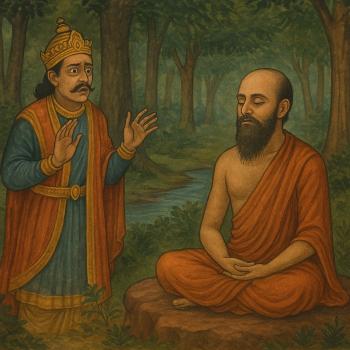I enjoyed David French's post last week, "An Open Letter to Young, 'Post-Partisan' Evangelicals." I definitely "get" it, even if I never really went through the despising-my-Christian-elders stage. (That's not necessarily an advantage, by the way. A chief petty officer who worked for me used to tell me I wouldn't know "hip" if I found it dead in my lunchbox.) David is right about some important things.
He indirectly makes the point that partisanship is an element of the human condition—it's not something more to be drummed out of us, any more than our love of stories or our penchant for experimentation should be. To try to foster a "non-partisan" political climate is to try to impose one in which there is no independent thought or dissent. Neither the Left nor the Right should attempt it, nor should we despair that as the years roll by, everyone with an interest in politics is always a partisan of one kind or another. Disagreement and partisanship are not bugs in the human condition; they're features. Without them, there would have been no progress at all over man's history.
It's quite true that as Christians, we need to keep politics in perspective. But imagine if William Wilberforce had interpreted that to mean that he should focus his own Christian passion solely on "non-political" activities. Wilberforce was a fierceanti-slavery partisan in British politics—and the political outcome he and his supporters achieved has shaped the history of the entire world in the decades since.
His story reminds us that for Britain to outlaw the slave trade—something history would have bet against—there had to be a relentless, uncompromising advocate working through a consensual political process, in which an empowered people could argue contentious proposals. The political conditions mattered: Wilberforce could not have achieved what he did in almost any other nation of the time. But once the example was set in Britain, other European nations began to follow suit.
Political partisanship nevertheless has its proper boundaries, because politics does. Politics and government can't do the most important things in life for each of us as individuals. When we are messing up our own lives, God and those who love us will tell us so and try to work with us, whereas politics will usually just exploit our misery to garner votes, and government is likely to subsidize some dysfunctional behaviors while disproportionately punishing others.
Politics has limited vision: it sees only that a man is a slave, someone in a social category—whereas God sees that that same man is created in His image, and contains within himself, regardless of his condition on earth, all the possibilities of God's greatest promises. God has never looked on any slave, anywhere, as a lesser or humiliated being. Politics, by its nature, is bound to. We are well served by the moral reminder of such distinctions; they help us remember why slavery is bad. But for the purpose of making us better and giving us hope, they can't take the place of a loving God for whom nothing is impossible.
Government's character does matter, however, to the condition of the people around us. The policies of government are never a neutral factor; Christians should be as interested in them as we are in anything else, although some people will naturally have a greater aptitude than others for politics and government. That's the case with every kind of human interaction. We should all take an interest, for example, in rehabilitating homeless drug addicts, but we don't all have a gift for directly providing them with tough love and therapy. Most people help in other ways.
If you have a firm, absolute idea of how much the Christian faithful should put into politics, I think you're wrong. There's no single, all-purpose standard for that. People are all different: for some, politics is unimportant and even noisome; for others, it is an inborn passion. That's not a problem. We all leaven each other in different ways—and we all need leavening. Life itself has to teach each of us how to put politics in perspective. It is an individual activity; it can't be done by rule, or be prescribed by some as a discipline for others.
We learn over time that law isn't what persuades us to believe the right things or to love each other. Law is a blunt instrument, capable of coercion, punishment, and deterrence, but not of uplift. When it violates the consciences of the people, moreover, law sows discord and alienation. The character of law matters to the health of society. Law that pretends not to "impose morality" is always doing exactly that. Political protection for partial-birth abortion, for example, is most certainly a means of imposing a particular kind of moral position on society.





